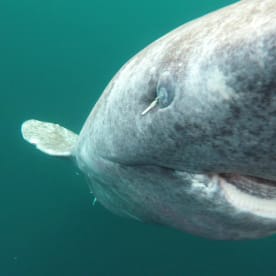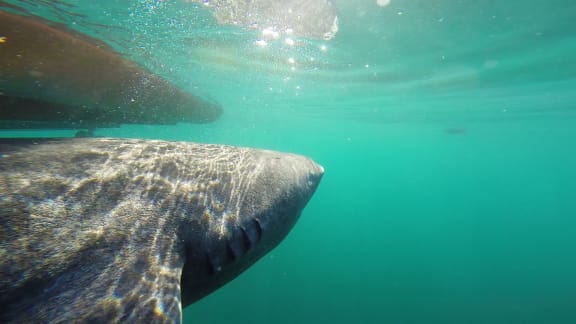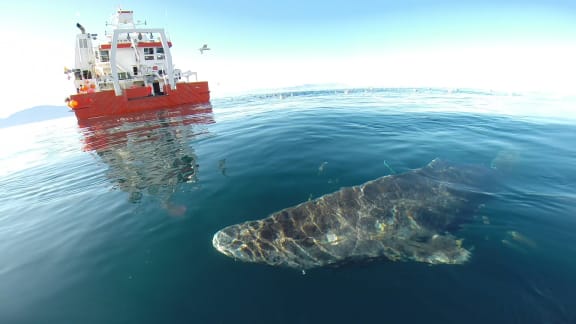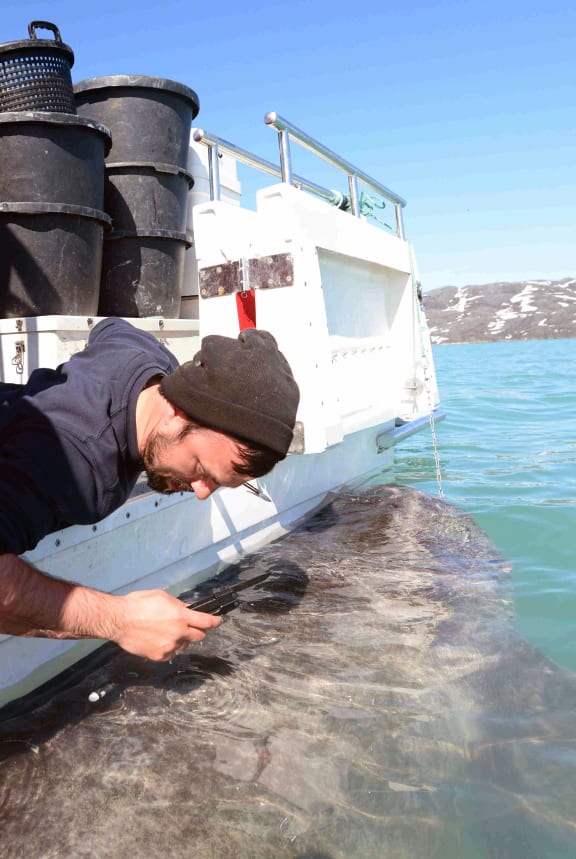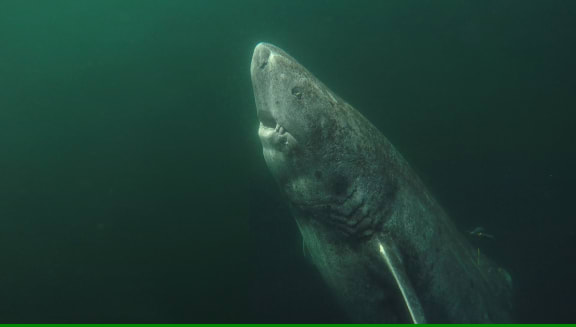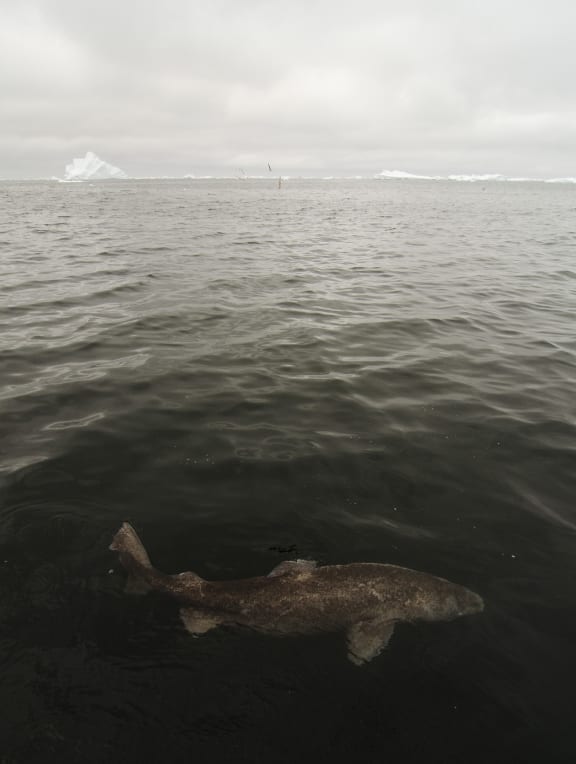Sharks that pre-date the Industrial Revolution could hold the secret to longevity, as well as shedding light on the human impact on the oceans.
Greenland sharks are the longest living vertebrate on the planet, with the oldest known individual estimated to be 392.
A team from the Arctic University of Norway has so far taken fin clippings from about 100 Greenland sharks, as well as carbon-dating lens tissue, to create an accurate method of measuring the sharks’ ages.
Professor Kim Praebel says the team has finished mapping the sharks’ mitochondrial DNA and is now mapping the DNA of the cell nucleus, to create a full genome.
“That’s a long task. It’s complex because the nucleus genome is really big.”
Mapping the shark’s genes could help to explain why the species is so long-lived, Dr Praebel says.
“From studying that, we can tell a lot about why … do they live longer than other sharks … or other vertebrates - longer than us, for instance.”
The team is slowing finding answers, he says.
“The sharks have developed a really good immune system … that differs from other vertebrates.”
By comparing fin tissue with lens tissue - which is not affected by what the shark eats - the researchers can also find answers to how much of an impact humans have had on the oceans.
“All the thermonuclear bombs that were tested in the 1960s created this gigantic peak and that accumulated in the sharks,” Dr Praebel says.
Other contaminants have also been detected in the tissue samples.
As well as being long-lived, Greenland sharks can also dwell in extremely deep water.
“[On] an oil platform in the Mexican Gulf, there, when they inspected the well … they actually saw Greenland sharks at 1000m, 1200m,” Dr Praebel says.

